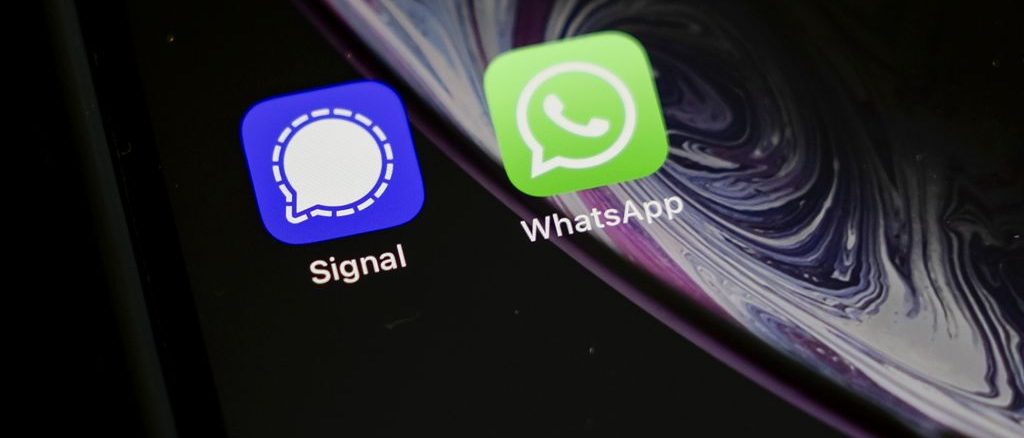
Go or stay? Switch from WhatsApp to Signal is dilemma
Perhaps in recent weeks you witnessed a discussion in an app group about the use of Big Tech platforms such as Facebook and WhatsApp. Cause: The change of course van Mark Zuckerberg, the boss of parent company Meta. With the inauguration of US President Trump, he took a new path. It means that users are wondering: do we stay on the same platforms or is there a fully -fledged alternative, such as ChatApp Signal?
“My mother has a friend who switched to Signal, but that makes her no contact with him anymore,” says student Gijs Broere (20), who uses WhatsApp for private chats. “I just want to be able to see and send all my messages on one platform. Nice and clear. I can find friends and family there. I would find it annoying if some groups of friends are on other platforms.”
Difference WhatsApp and Signal
WhatsApp and Signal work the same in the core: you can send messages one-on-one or in groups. Both apps are protected in such a way that only the sender and receiver can see the content of messages. Meta and Signal cannot therefore read along.
The big difference is that Meta collects information about your WhatsApp use, for example with whom you chat, when and for how long. Signal does not aim to make a profit, but wants to make a chat app as privacy -friendly as possible. The organization therefore does not collect this type of data.
For independent entrepreneur Peter Goossens (58), Signal is a good alternative to WhatsApp because he value his privacy. “Perhaps more difficult point is whether friends, acquaintances and colleagues also want to switch. Of course that is not from one day to the next, so I use the apps next to each other for a while. A large part of my family is already over, but the Most friends don’t know Signal again. “
The end of Meta’s cooperation with fact checkers and allowing the describing homosexuality as ‘spiritually ill’, led to criticism among experts and users. And although the discussion is raging, it does not seem that the Dutch are switching en masse.
Signal says it see a huge increase: the number of registrations is 25 times larger this year than before, the organization told the NOS. The NOS has asked Signal several times for hard figures about the number of users, but the organization only comes with relative increases.
900,000 users
The fact that the number of people used is growing is not evident from figures from Newcom. The research agency looked at the internet behavior of Dutch people between 2 and 18 January and even sees a dip in the number of people on Signal: from 7 percent in 2024 to 6 percent early this year. Around 900,000 people in the Netherlands are now active on Signal.
And those who use Signal often continue to use WhatsApp, according to analyzes from Newcom. The number of people who say goodbye to WhatsApp and only uses Signal is small: 2 percent. They do use it relatively often daily. “So it is an alternative to WhatsApp leavers,” says Neil van der Veer of the research agency.
Yet the reactions are illustrative of the dilemmas that users now experience, says Philipp Masur (VU University Amsterdam). He investigates the impact of social media on our daily lives. “Because what do you do if you want to switch but not friends? Then switching makes little sense. You can negotiate in many circles and convince someone, for example people who give less about it.”
Newcom figures correspond to findings from earlier research, says Masur. Although users are angry with the platform, or disagree with the course of the company, that does not mean that they will stop. “Perhaps there is a minority on WhatsApp who no longer uses it because of Zuckerberg, but the majority will continue the existing behavior.”
According to Van der Veer, the best predictor of future user behavior lies in the past. Like in 2018, then Facebook heavily under fire. At the time it was not the political course, but the handling of privacy that led people to leave. “Some of the users stopped with Facebook, but not for long. Simply because we have grown too strongly with it. You are where your network is.”
Masur also does not think that people transfer en masse. Years ago he went through the process and noticed how difficult it was to convince his environment. But he succeeded. “Thanks to my specialization in privacy, I was able to convince people with arguments. I am not saying that everyone has to do it, but in the end many people left my social circle.”

Be the first to comment